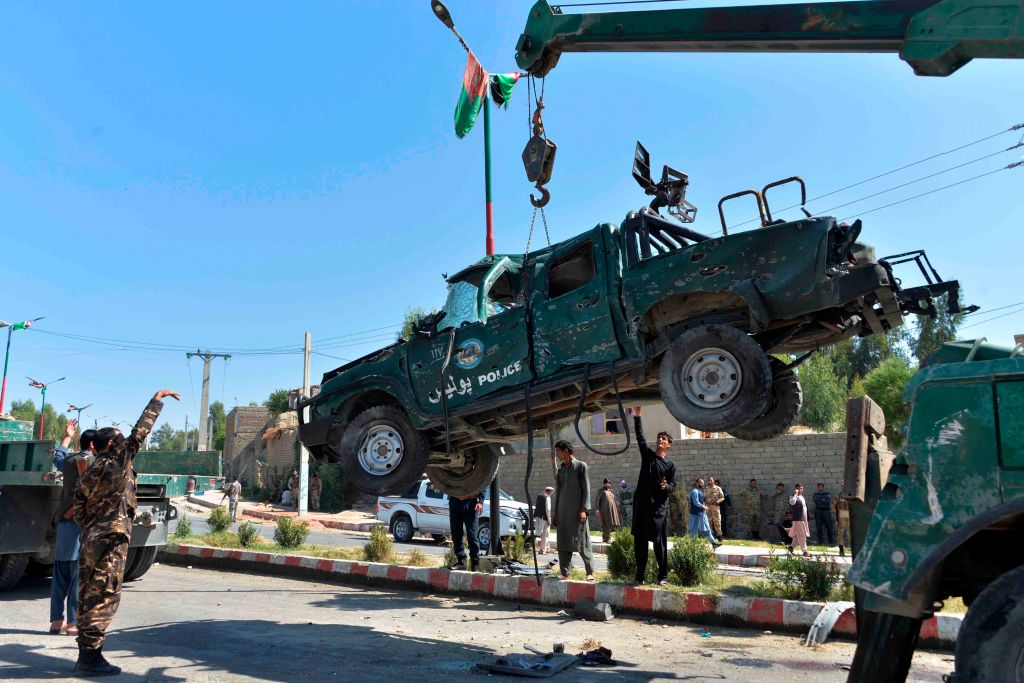Trump’s perilous approach to Afghanistan
Posted By Amin Saikal on November 23, 2020 @ 12:45

The US presidential transition has generated much uncertainty not only for the American public, but also for many of America’s allies and adversaries around the world. Affected most acutely are the countries whose futures hinge on the outcome of what President Donald Trump might or might not do during the remainder of his presidency. Afghanistan is one of those states.
Trump has been eager to end America’s two-decade-long military involvement in Afghanistan before his term of office expires. His administration signed a peace agreement with America’s erstwhile enemy, the Taliban, in February. The deal essentially provided for withdrawal of US and allied forces from Afghanistan within 14 months, in return for a Taliban pledge that they would not allow Afghan soil to be used for hostile actions against the US and its allies. The deal also provisioned for the release of 5,000 Taliban prisoners from Afghan jails in exchange for 1,000 Afghan soldiers held captive by the Taliban.
Washington hailed the agreement as a pathway to an ‘inter-Afghan dialogue’ involving the Taliban and an Afghan government-led delegation for a lasting political settlement of the long-running conflict.
The agreement, however, is badly flawed. It was primarily designed to enable Trump to rapidly reduce American troops from 14,000 to 4,500. Yet, it didn’t commit the Taliban to a ceasefire or to curtail their operations against Afghan forces. Nor did it oblige the militia to engage in a genuine inter-Afghan dialogue. Similarly, it failed to take note of the fact that the Taliban had limited territorial control, mostly outside the main urban centres, and that the militia was still embedded with al-Qaeda, as has since been confirmed by US intelligence sources and the United Nations. Meanwhile, al-Qaeda and the Khorasan branch of Islamic State (which has claimed numerous deadly operations), not to mention many criminal gangs, have remained active across Afghanistan.
Although after months of delay the so-called inter-Afghan dialogue started in Doha on 2 September, no progress has been made so far. The two sides have become bogged down on procedural matters. The Taliban negotiators, who are intimately linked to Pakistan or, more specifically, its all-powerful military intelligence, have insisted on their peace agreement with the US as the basis for any discussion.
Their counterpart, led by the Afghan government, which was not a party to the US–Taliban peace deal, has deflected this with counterproposals. The emboldened Taliban have nonetheless maintained the mirage of a dialogue, while dramatically escalating their operations on the ground, inflicting an unacceptable and intolerable toll on Afghan forces and civilians, and expanding their territorial control.
The Afghan security situation has gone from bad to worse since the signing of the US–Taliban deal, and the Afghan government has, as usual, remained feeble and kleptocratic. Trump—despite warnings against further troop reduction by many high-ranking Republicans and military heavyweights, as well as NATO Secretary General Jens Stoltenberg—has just ordered the exit of a further 2,000 US troops from Afghanistan. He has contended that the presence of a very small American force and the US intelligence network will enable the US to maintain its anti-terrorism operations in Afghanistan, irrespective of who governs the country and how it is governed.
Afghanistan has never been as vulnerable to more violence, bloodshed, insecurity, ethno-political and cultural divisions, widespread corruption and therefore a potential Taliban victory since the start of the US and NATO allied intervention in the country in 2001. All the US and international community investment in the country, made in blood and money, is now at serious risk.
President-elect Joe Biden has not been in favour of the continuation of America’s longest and most costly war either. But he is in agreement with many American political and military figures and seasoned analysts that the withdrawal should be a responsible one. In other words, he has favoured a pull-out in a manner that minimises the chances of a victory by the Taliban and their supporters, requiring the US and its allies to go back into Afghanistan to deal with new challenges, as they did in the case of Iraq in the event of the emergence of IS.
The suffering and traumatised Afghan people have longed for peace for four decades—since the April 1978 pro-Soviet coup in Kabul, followed by the Soviet occupation of Afghanistan (1979—1989), the turbulent rule of the Western-backed mujahideen or Islamic resistance groups (1992–1996), the draconian theocracy of the Taliban and al-Qaeda (1996–2001), and finally the US-led intervention.
Yet, as the situation stands, the prospects for a return of peace, stability and security remain elusive for the Afghans and their region. Trump did not start the Afghan war, but the way in which he is disentangling the US from it may well prove to be very counterproductive.
Article printed from The Strategist: https://www.aspistrategist.org.au
URL to article: https://www.aspistrategist.org.au/trumps-perilous-approach-to-afghanistan/
Click here to print.